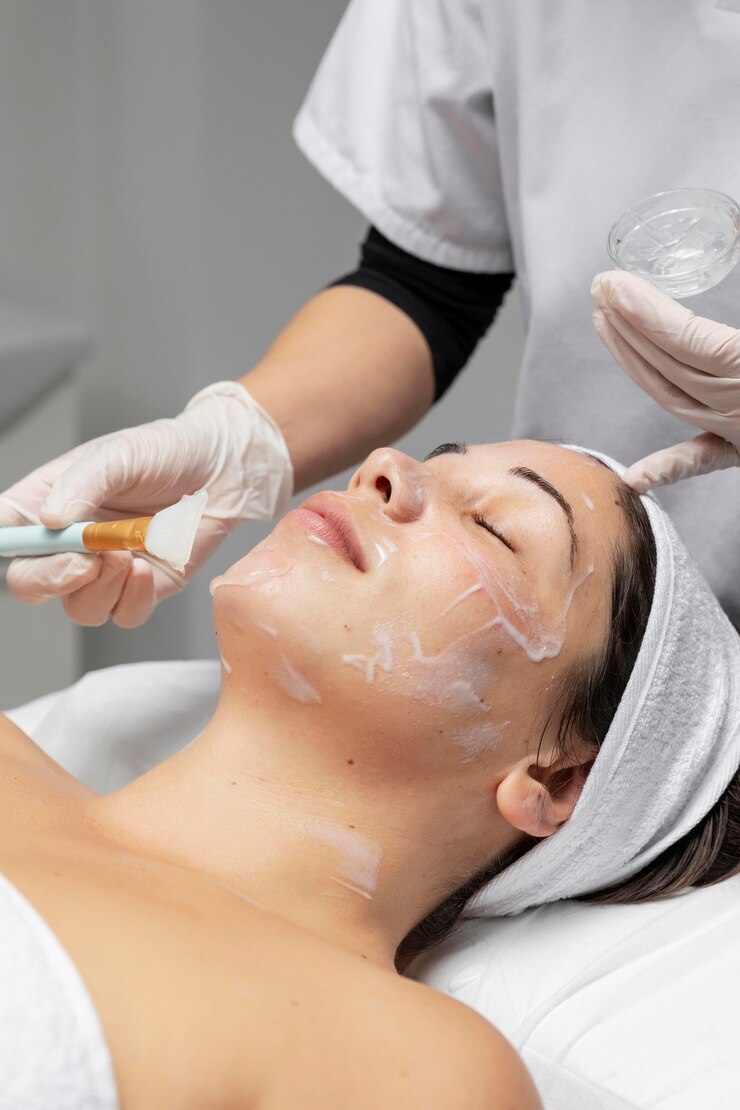A chemical peel treatment is a widely sought-after method for improving skin texture and tone. The process involves applying chemical solutions to exfoliate the skin, resulting in smoother and more even-toned skin. This procedure not only enhances cosmetic appearance but also addresses various skin issues such as fine lines, acne, and hyperpigmentation.
A chemical peel is one of the most popular skin treatments to improve skin texture and tone. The procedure uses chemical solutions that are applied to the skin to exfoliate it, leaving smoother and more even-toned skin.
Besides the cosmetic impact of better-looking skin, it can also be used to treat some skin conditions such as fine lines, acne, and hyperpigmentation. Working with qualified doctors like Dr. Rasesh Shah can help you achieve your desired goals.
However, even with all these benefits, chemical peel treatment also has its downsides. Read on to understand the advantages and disadvantages of these procedures.

Advantages of chemical peel treatment
Skin rejuvenation: everyone wants smooth and glowing skin, which can easily be achieved through appropriate skincare routines like exfoliation. By removing the old and worn-out skin cells and promoting new skin cells and collagen production, chemical peel treatments are an effective solution to rejuvenate the skin.
Acne treatment: chemical peel treatments have also been proven to be an effective solution for acne by helping to reduce inflammation, unclog pores, and improve acne scars.
Reduces hyperpigmentation; chemical peel treatments can help even out the skin tone and lighten dark spots.
Reduces the appearance of fine lines and wrinkles; deeper chemical peel treatments can help reduce the appearance of fine lines and wrinkles when done consistently.
Improves skin texture. Chemical peels can help improve the texture of the skin in many ways. This includes eliminating the old skin cells and promoting the growth of new skin cells, reducing skin roughness, and promoting a smoother skin surface.
Disadvantages of chemical peel treatment
Some potential risks and considerations of chemical peel treatments include:
Potential skin irritation: some patients who opt for medium and deep chemical peels have reported experiencing skin irritation, swelling, redness, and discomfort, especially those with sensitive skin.
Hyperpigmentation: Individuals with darker skin types who undergo medium and deep peels stand a risk of hyperpigmentation, especially in cases of improper application and/or excessive peeling. This is why it is important to only work with a qualified and experienced specialist to guarantee the desired results.
May require multiple sessions; several chemical peel treatment sessions may be required to achieve the desired results. This can significantly increase the overall cost and time commitment, which may not be suitable for some individuals.
Sun sensitivity: if you are opting for a chemical peel, it is also important to consider the fact that your skin will be more sensitive to the sun; hence, prepare for adequate sun protection to prevent skin damage.
Recovery: Deeper peels generally tend to require more time to recover. During this time, the skin is more sensitive and requires extra-special care.
Cost: Chemical peel costs vary depending on the type of procedure and products used. Some of these procedures may be more costly than other alternatives.
Different skin types and considerations
Normal skin: Individuals with normal skin types are the luckiest, as they can choose any type of peel. However, it is better to start off with milder peels to avoid any potential risk.
Dry skin: superficial peels work best with dry skin as they are gentle and don’t dry excessively.
Oily (acne-prone) skin: this type of skin requires chemical peels that contain salicylic acid to address the oiliness and acne concerns.
Sensitive skin: people with sensitive skin types should opt for gentle peels to minimize the risk of irritation.
Dark (ethnic) skin tone: it is important to be cautious when picking a chemical peel for darker skin tones as they are more susceptible to hyperpigmentation.
By understanding these benefits and risks, individuals can make informed decisions about whether chemical peel treatments align with their skincare goals. For personalized advice and treatments, consult with experienced professionals like Dr. Rasesh Shah to ensure safe and effective results.

